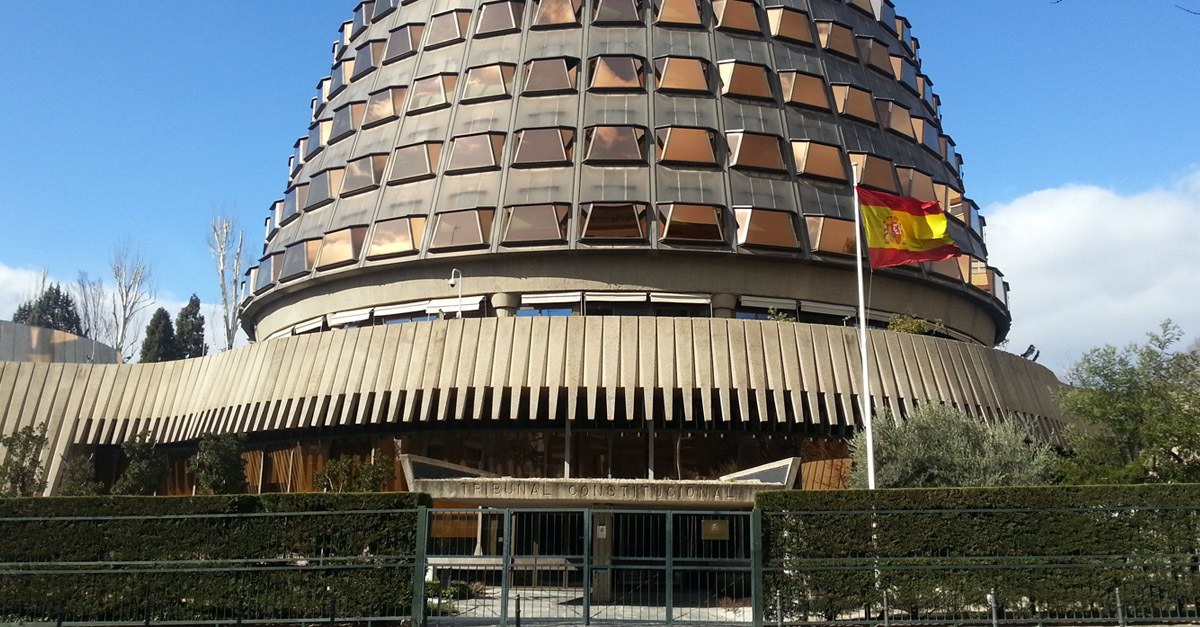Disobedience of senior public administration officials

Sentence of the Constitutional Court of November 3, 2016 (st. 185/2016)
Background
The sentence that I am going to comment on is a consequence of the unconstitutionality appeal number 229-2016 promoted by the Basque Government against the Organic Law 15/2015, of October 16 , reform of the Organic Law 2/1979, of October 3, of the Constitutional Court (TC), for the execution of the resolutions of said court as a guarantee of the Rule of Law.
We must note that on November 3, 2016 the Constitutional Court endorsed the reform of its own organic law. Said like this, it seems somewhat strange that it is the same court that has to endorse its own law, in this case the reform of its governing law, but someone has to do it and that someone, in the exercise of its powers, is the TC as the maximum guarantor. of the adequacy of all laws to our Magna Carta.
The aforementioned reform fundamentally affects the power of the Constitutional Court to suspend from their functions those senior officials of the Administration who disobey its resolutions and thus, specifically, article 92 of the Law The Organic Law of the Constitutional Court establishes the following after the reform:
Art. 92.4:
“In the event of noticing that a resolution issued in the exercise of its jurisdiction could be being breached, the Court ex officio or at the request of some of the parties to the process in that had relapsed, it will require the institutions, authorities, public employees or individuals to whom it corresponds to carry out its compliance so that they report on it within the period set for them.
Once the report has been received or the established term has elapsed, if the Court finds that there is total or partial non-compliance with its resolution, it may adopt any of the following measures:
- Impose periodic penalty payment…..
- Agree on the suspension from their functions of the authorities or public employees of the Administration responsible for the breach, during the necessary time to ensure compliance with the Court’s pronouncements.
- The substitutive execution of the resolutions relapsed in the constitutional processes. In this case, the Court may require the collaboration of the National Government so that, in the terms established by the Court, it adopts the necessary measures to ensure compliance with the resolutions.
- Deduce the opportune testimony of individuals to demand the criminal responsibility that may correspond.”
Comments
This reform is truly important because although it may be thought, and not without reason, that it is somehow distorting the essential function of the TC, that it It is another matter to ensure the adjustment to our Magna Carta, as I said before, of all legal provisions, however it is imposed by the urgent need to protect the Rule of Law in the face of flagrant non-compliance by certain authorities of any resolution that does not conform to their partisan interests.
It goes without saying that, in particular, the reform is motivated by the constitutional uprooting of certain pro-independence parties that, because they do not recognize, do not even recognize the maximum norm that allows their existence: the Constitution.
It is surprising after almost four decades of democracy that at this point this issue has to be debated due to the undeniable reality of contempt that certain behaviors with Special mention to the pro-independence Catalan authorities who not only do not carry out sentences, including those handed down by the Supreme Court, but who have no qualms in manifesting actively and passively, publicly, that they are willing to continue with this attitude of disobedience.< /p>
Having said this, we must therefore conclude that the main cause of the reform that is the object of these considerations is the behavior of the Catalan Generalitat (although the appellant was the Government of the Basque Country) and as an objective to stop this wave of insurrection.
The reform is not without controversy due to what is extraordinary about the fact of turning the Constitutional Court into a more ordinary court something that, initially, seemed far from the will of the legislator.
Precisely for this reason, the sentence is in charge of remembering that the Constitutional Court is a true jurisdictional body whose task (contrary to what has been commonly believed ) is not limited to declaring what does or does not fit into the Constitution but rather has the power to execute its own resolutions as -I insist- an ordinary court and considers that power necessary to guarantee the supremacy of the Constitution.
This sentence, very extensive, has the particular vote of three magistrates who base their discrepancy on the fact that the reform grants the TC functions that exceed those constitutionally recognized and because it means disempowering them to another constituted power such as the Government.
There is even talk of the overlapping of enforcement measures with the measures provided for in article 155 of the Constitution (that controversial article never used until now whose application would mean the suspension of the functions of an Autonomous Community, that is, the suspension of autonomy, said in colloquial terms) so that it would be inapplicable.
In conclusion I understand that, as with the interpretation of laws, the work of the TC cannot be done avoiding the socio-political context in which legislation is developed, however, this necessarily involves ensuring that judicial decisions are respected as the only guarantee of the full functioning of a Rule of Law with all that this entails legal security, democratic development and stability of a country. In short, the rule of law is at stake in the 21st century. Who would have thought!
At this time it is breaking news that the Congress of Deputies will proceed to study a bill promoted by the PNV that goes exactly in the opposite direction to the commented reform. It is a matter (as a newspaper headlines) of reversing the reform of the Constitutional Court, that is, of tearing down the reform of the commented article 92 of the LOTC.
It will be necessary to follow the parliamentary process of this alleged reversal and the arguments that can be put forward by the different political formations. We have no choice but to wait but always starting from the basis that the laws are to be complied with and the resolutions of the courts to be complied with.



















